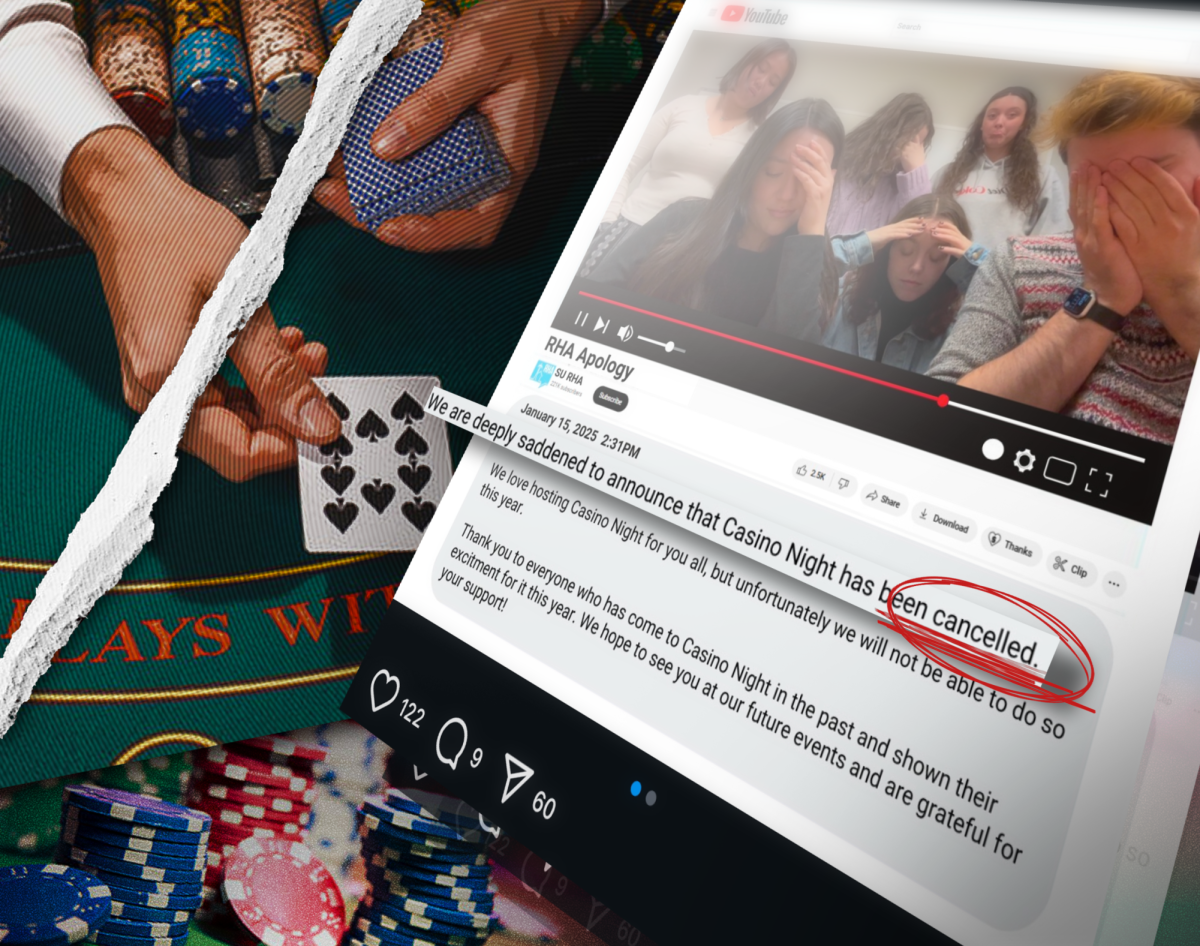In South Korea, many women have participated in a form of protest called the 4B movement. Participants are actively disengaged in activities with men including sex, dating, marriage and having children. The name “4B” comes from all four of these words starting with a “B” in Korean—bisekseu (no sex), bichulsan (no childbirth), biyeonae (no dating) and bihon (no marriage).
In the United States, the recent re-election of Donald Trump has sparked widespread concern for women’s access to abortion and reproductive rights. Young women, especially, have taken to social media to express their interest in the 4B movement and its values to abstain from romance and sex with men in order to force them to confront the limitations of women’s rights.
What is the 4B Movement?
Following constant violence and two high profile murders of women in 2022, the 4B movement arose in response to the harsh sexism against women in South Korea. A society built in favor of men, South Korean men earn 31.2% more than women in workplaces, another factor which led to several women banding together in protest.
Pasheen Johnson, a fourth-year communication and media major, is focusing her senior capstone project on declining birth rates in Japan, Korea and the U.S. Johnson has been including research about the 4B movement in her capstone project because declining birth rates are a main outcome of the movement in South Korea.
Johnson noted that as she conducted her research, it was jarring to see just how mistreated women in South Korea were and stated that their involvement in 4B is an inspiring act.
“They’re taking [4B] seriously, and one of the outcomes is the declining birth rates,” Johnson said. “It’s declining so greatly that they’re past the rate of birth for keeping their population [high] for the years to come.”
The data backs up Johnson’s points. According to Al-Jazeera, South Korea has one of the lowest birth rates in the world. The country’s overall birth rate percentage went from 8%in 2022 to 0.72% in 2023. These numbers speak to the power that women hold in society and that, itself, cannot grow without the involvement of women.
4B’s Introduction to America
While South Korea’s 4B movement has been active since 2022, women in America are just recently exploring the movement’s purpose and impact in reaction to the recent election results.
Many Americans believe that Trump’s victory will be harmful to women’s rights. Some believe that he will amplify traditional values where a man is the head of a family, and respect for women will not be the social norm.
“At the heart of the 4B movement is a belief that women are not owned by men; at the heart of Trump’s platform is a belief that men own women,” Monica J. Casper, dean of the College of Arts and Sciences, wrote in an email to The Spectator.
Associate Professor and Communication and Media Department Chair Caitlin Carlson noted that due to this, American women are looking for ways to get people’s attention and challenging them to realize that their current experiences are not fair, their rights are not enough, and they deserve a political system that holds them to the same standard as men.
“Women in the United States are basically looking to South Korea and saying, you know, if this is a response, a form of resistance that has gotten attention and forced people to take notice about violence against women in [South Korea], that maybe something similar here will get primarily heterosexual men to stand up and take notice of the different forms of violence,” Carlson said.
Despite these perspectives, a large percentage of women still voted for Trump. An NBC News exit poll found that 43% of women in 10 key states voted for Trump. At the top of this list was white women, who voted for Trump at a rate of 53% .
Still, interest in the movement has spiked on social media sites like TikTok, X and Instagram. However, these social media platforms lack a deeper understanding of the 4B movement. Namely, its interpretation in some TikToks pushes the movement as a way to decenter men from women’s lives without fully understanding its origins.
First-year Marketing Major Via Tay noted that her understanding of the 4B movement comes from the book “Kim Ji-young, Born 1982” by Cho Nam-Joo. While fictional, the book reflects on real-life experiences with sexism that the author has experienced.
“Through this book, I understood why South Korean women made the 4B movement,” Tay stated. “The men got nasty in this book, and it’s all unfortunately very real situations.”
The book sold over a million copies by November 2018 and was positively accepted by the general public. However, some South Korean men were infuriated by the book’s perspective on the country’s rampant sexism and misogyny.
If a celebrity spoke praise for the book, male fans would criticize and withdraw support from the celebrity and their company. Most notably, Irene from K-pop group Red Velvet received harsh backlash for her support of the book, with male fans berating her and withdrawing support.
How Does Seattle U Feel About the 4B Movement?
While the 4B movement in South Korea is a proclamation against regimes of dominant, violent men, whether or not the movement would work in America is still unclear. Both Carlson and Johnson believe that the 4B movement may not be the right move for Americans.
“I don’t think we’re adopting the movement for the wrong reasons. I think we’re just not realizing or acknowledging the rest of the history that comes with it,” Johnson said.
While many people are still reeling from the election results, a turn to the 4B movement may be more of an emotional response rather than a logical conclusion that the American society is ready or willing for something so severe.
“I think a lot of women are waiting longer to get married, women are much more financially independent that marriage isn’t something that they need for economic stability,” Carlson explained. “Ironically, the reason women have economic stability is in large part, not just because of access to education, but it’s because of birth control.”
When asked for her stance on the 4B movement, Tay responded;
“It’s what South Korea needs right now, not America.”
Tay also voiced concerns that an American 4B movement would create a rise in Trans-Exclusionary Radical Feminist (TERF) ideologies being spread. In theory, it’s simple to abstain from intimacy with men, but this could affect social stigmas around discussing gender and sexuality.
“The foundations of the 4B movement could be translated over to Western feminism,” Tay explained. “But I just don’t think fully following the 4B movement to what we know about it in South Korea is the right way to go about it.”
First-year Film Major Juniper Fuja believes that an American 4B movement would have to come from a different place than its Korean origins.
“It’s sort of just a placeholder for things that need to happen,” Fuja said. “I feel it’s just a lot of white women going, ‘Oh, my boyfriend did something bad; I have to atone for that now because my boyfriend is a person who voted for Trump, and I put up with it.’”
What Fuja is referring to is a population of social media users, predominantly young white women, who disregard their partner’s openly racist, misogynistic and bigoted views. It wasn’t until Trump won the 2024 election that these women started to push back against their partners’ prejudiced beliefs.
Multiple other content creators, such as TikTok user @fredricktjoseph, have called these women out, pointing out the hypocrisy and differing priorities among them. This has further created a divide between white women and women of color, whom Western feminism already treats very differently.
Ultimately, the general consensus is that Seattle U students believe there is already too much nuance and divide in America’s feminist movement to successfully recreate the 4B movement.
Embrace Bold Action—Whether its the 4B Movement or Your Own Resistance
The 4B movement is a powerful example of how actions can lead to real change. But that actionable change may not work the same way for different countries or societies.
For South Korea, women have withheld their part in sex, dating, marriage and having children to show their male counterparts that they matter just as much as men do—if not more.
For America, in the coming years of a second Trump presidency, women are on the lookout for ways to protest against his controversial views which limit women and their rights.
Both Carlson and Casper encouraged students to take action however they believe will make change, whether that means educating the people in their lives, attending a women’s march or sending a message to your local congressperson.
Casper ended her email to The Spectator with a powerful call to action.
“Worrying about societal expectations, while normal, is not the path of radical social change – coloring outside the lines is. Some of our greatest heroines rejected social norms, often to their great detriment. Be bold. Be brave. But most of all, be true to yourself.”














